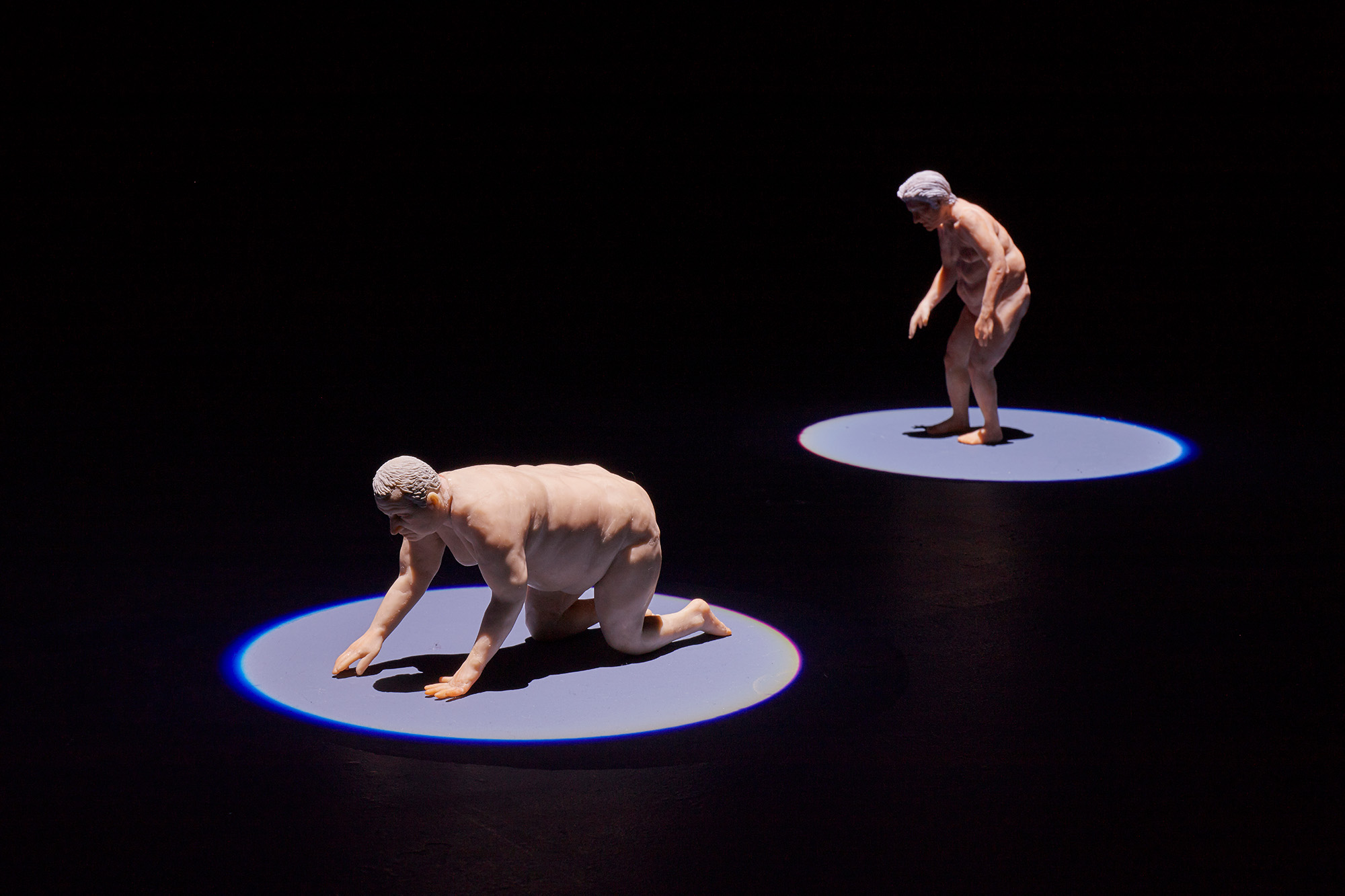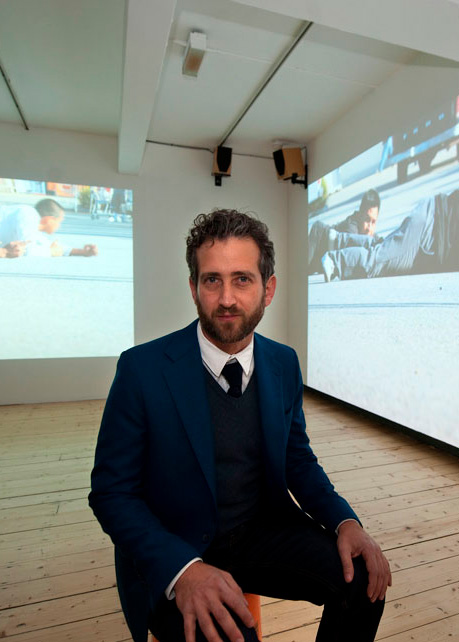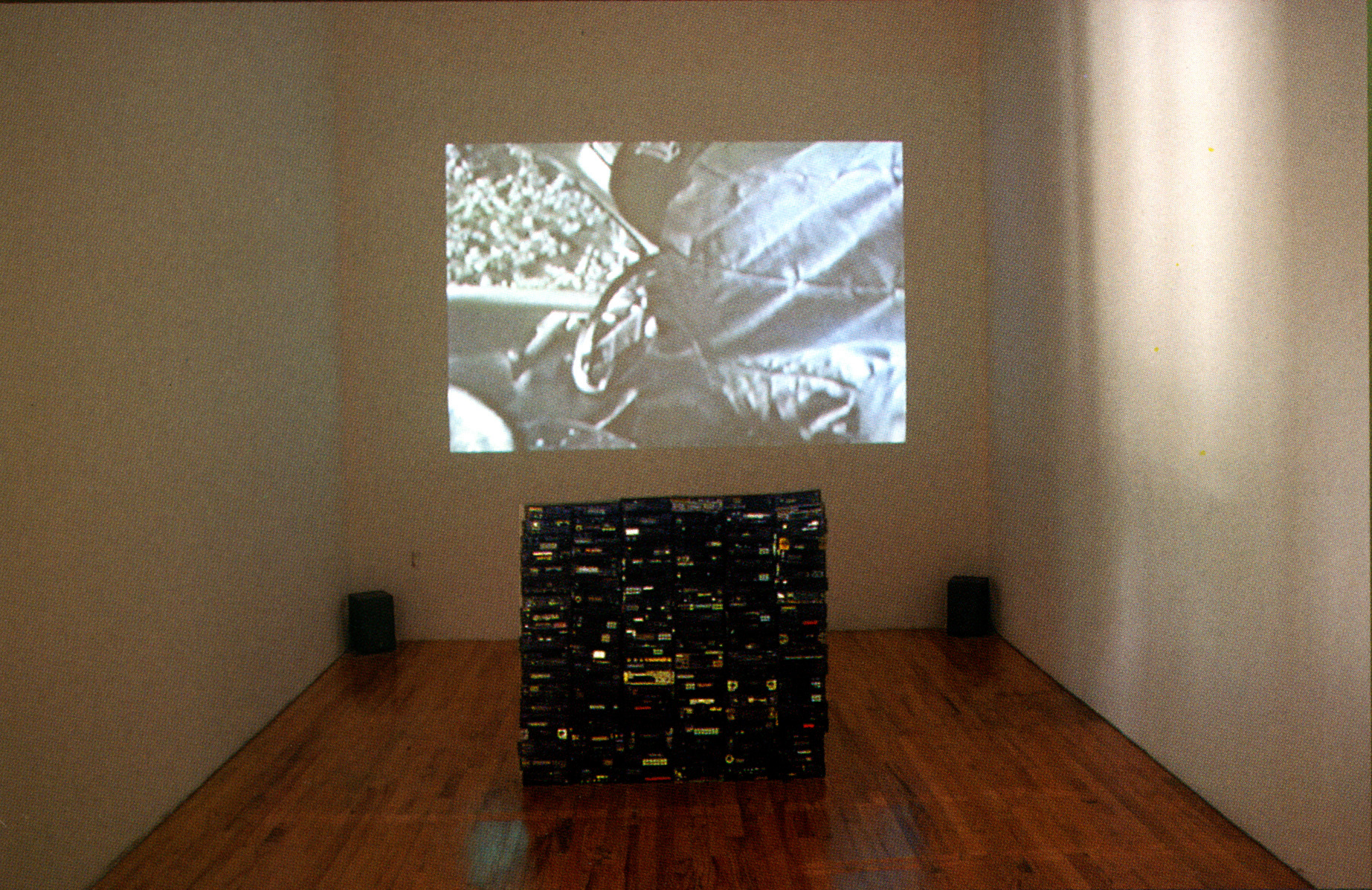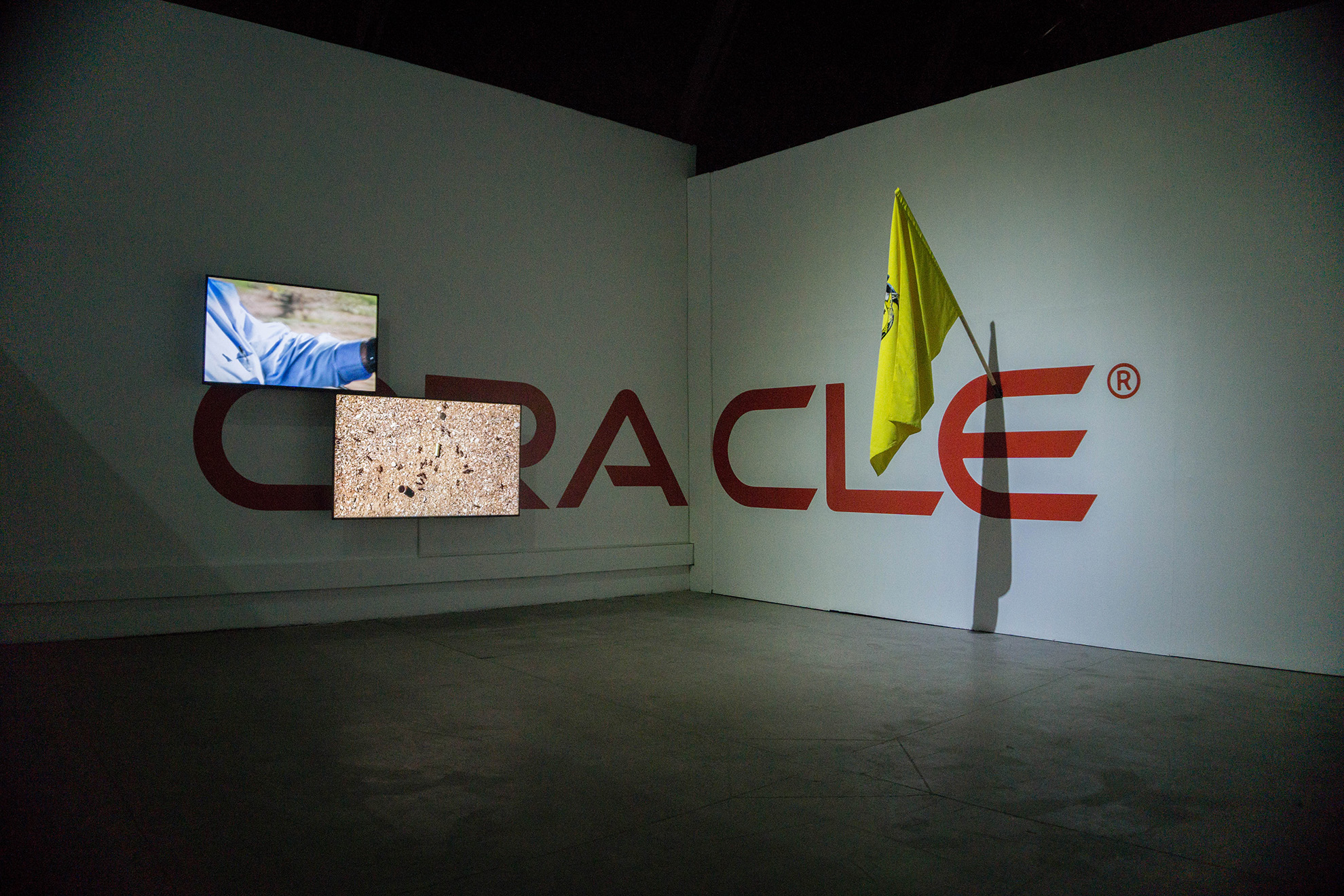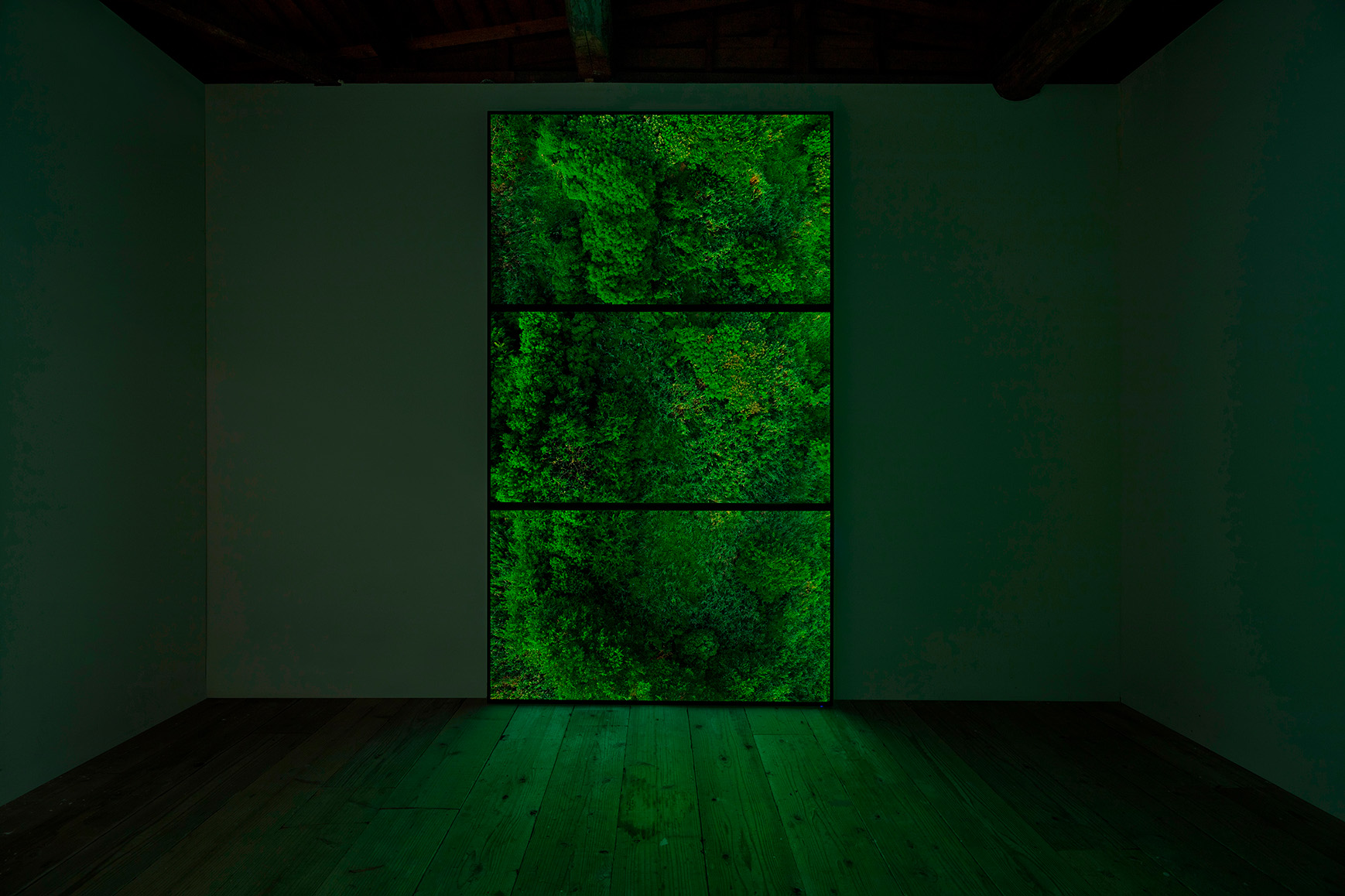Saló Island, 2013
Salò Island, conceptually begins with a crime scene: the murder of Pier Paolo Pasolini. The setting is the triumphant stomping ground of global neo-liberal economics: Fashion Island, Newport Beach, one of the first open-air coastal shopping centers established in 1967. Through Okón's somnambulant lens, we envision Fashion Island as a symbolic burial ground, one in which Pasolini's murder is conceptually evoked as signifying the death of an era: 1960s Newport Beach culture, with its independent businesses, adolescent sexuality and human scale architecture. In its place, we enter a filmic montage of contemporary Fashion Island, presented as a surreal late night corporate labyrinth, completely devoid of people, although perfectly lit and ready for business. A visualization of neo-liberal capitalism that proffers up readymade environments in place of usable public space, in Okón's hands, this mise-en-scène sets the stage for a real time public intervention. Enter the specter of Salò's human dogs. No longer are they Pasolini's young dogs in hell. They return to us now as dogs from hell, aged and decrepit. An allegory for what was once there, in situ, and what might still come to be, Salò Island is both a solemn warning and a poetic ruminati.
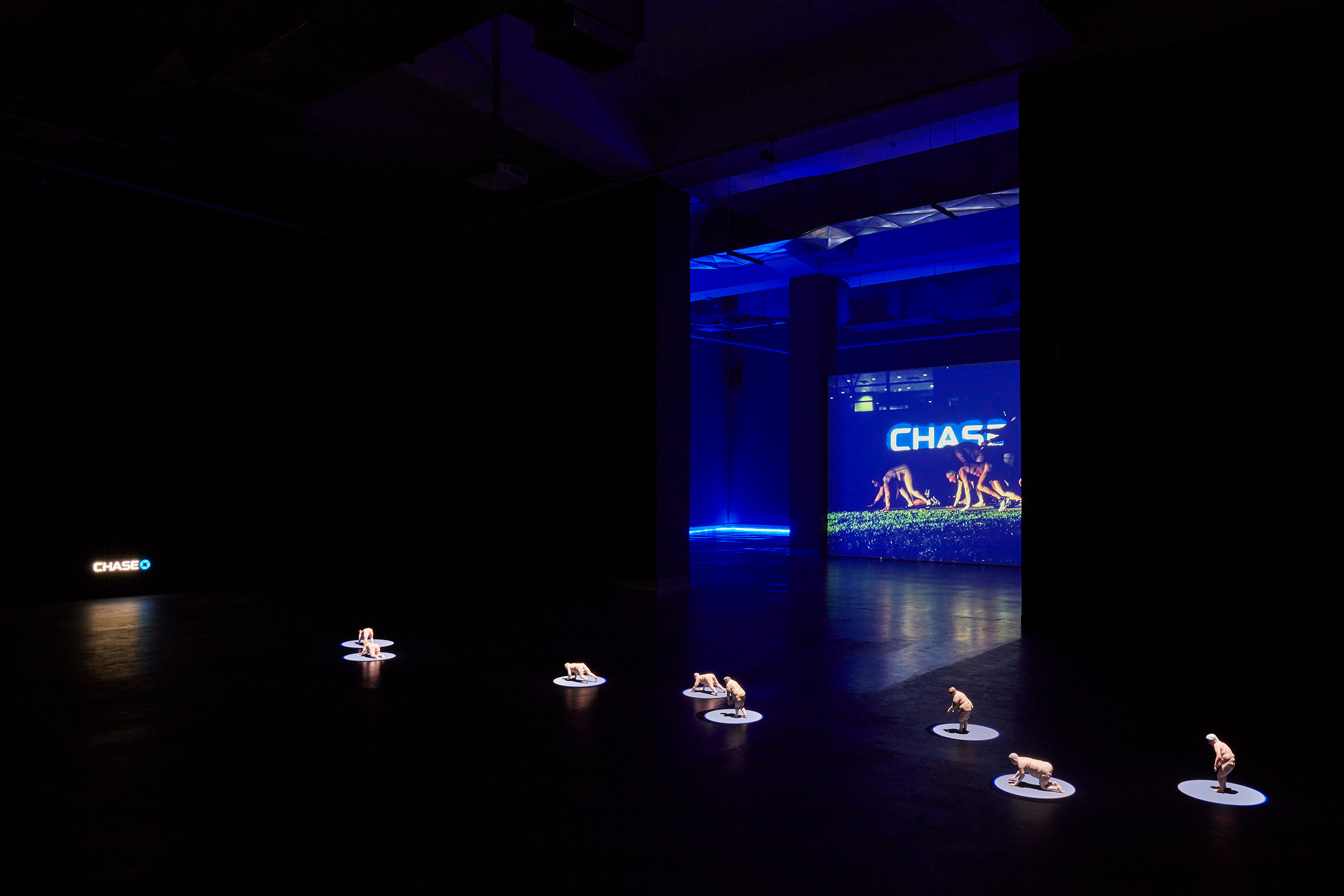
Video installation
